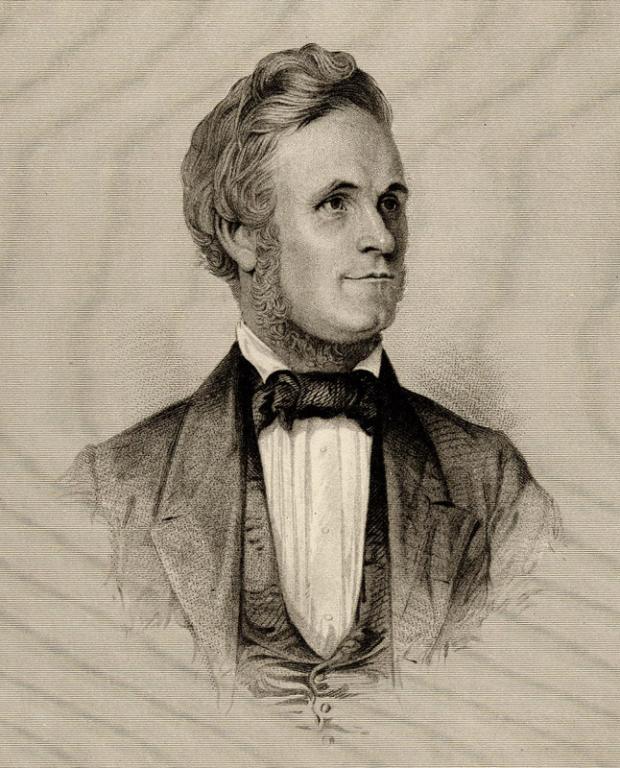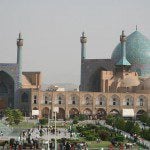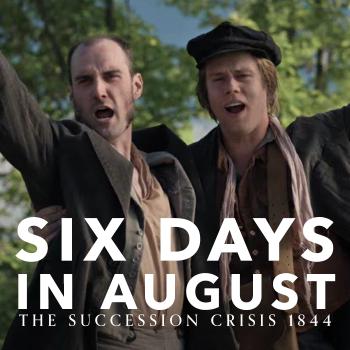
Coming toward modern times, and certainly toward modern issues:
Meanwhile, as Arabs and Muslims faltered and desperately sought a reason why, a new humiliation was brewing. A new movement was beginning to gain force among the world’s scattered Jews. This was Zionism, a movement designed to realize the long-standing Jewish dream of a return to the Holy Land. It arose during the very period when a liberal European-style nationalism, with dreams of parliaments and self-determination, was finally beginning to grow on Arab soil. The two nationalistic movements were bound to clash.
Ever since their dispersion from Palestine early in the Christian era, Jews had yearned for their lost homeland. Prayers for a return to the Land were often on their lips. The great twelfth-century Spanish Jewish poet and philosopher Yahuda Halevi expressed the sadness of exile eloquently when he wrote, “My heart is in the East, but I am at the furthest West.” Yet, for many centuries, nothing happened. And with every passing year, any realistic observer would have concluded that the restoration of a significant Jewish presence in the Holy Land was growing more and more improbable. Many Jews, apparently drawing that very conclusion, in fact began to sink their roots deeply down into the soil of the countries in which their families had lived for generations. When, for instance, the king of Prussia summoned all his subjects to unite in fighting Napoleon, the Jews were as enthusiastic as anybody in their response. “Oh, what a heavenly feeling to possess a fatherland!” a patriotic Jewish manifesto cried out. “Oh what a rapturous idea to call a spot, a place, a nook one’s own upon this lovely earth.”[1] The old anti-Jewish persecutions and regulations seemed to be a thing of the past. Tired of living as perpetual exiles, the Jews of Europe understandably wanted—for perhaps the first time in nearly two thousand years—to feel really at home. Was the dream of Zion dying?
In 1876, Elder John Taylor recalled a conversation he had had with the prominent French Jewish financier Baron Rothschild. When the Baron asked him what the Jews could do to reestablish themselves as a nation in the Holy Land, Elder Taylor replied,
You can do nothing unless God directs. You as a people are tied hand and foot, and have been for generations, and you can’t move a peg unless God strikes off your fetters. When he says the word the things spoken of by the prophets will be fulfilled. Then, the measuring line will go forth again in Jerusalem, then your Messiah will come, and all those things spoken of by the prophets will be fulfilled.[2]
Within a few years, it had become clear that the Lord had, indeed, begun to act in this matter. After nearly two thousand years of dispersion, it was time for the Jews to begin the return to the land of their fathers. But God moves in mysterious ways, and the manner in which the Jews were encouraged to return was not, perhaps, a way that any human mind could have foreseen or would have designed. It was a series of pogroms—organized persecutions, and even systematic massacres, of Russian Jews—that spurred the first significant wave of Jewish immigration from Europe to Palestine. Thus, the initial impetus for the rise of the Zionist movement came less from desire for Palestine than from discomfort in Europe.
[1] Walter Laqueur, A History of Zionism (New York: Schocken Books, 1989), 3. Laqueur’s is the standard work on the subject.
[2] Journal of Discourses 18:200.












